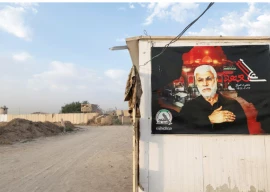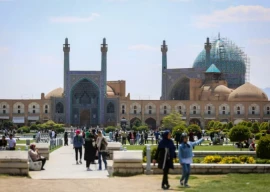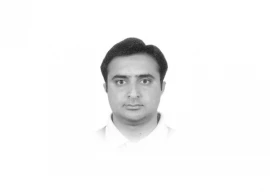
PESHAWAR:
Scarred by terrorism, Ramazan is a month of respite for residents of Peshawar.
Not only does the city get a break from senseless violence, philanthropic activities in the city also increase manifold. Thousands of people are hosted at Iftar meals everyday at mosques, bazaars and on the outskirts of the city.
“Ramazan is the month of blessings from God … I feel fortunate about having to spend my wealth with other deserving people and tell them that I would always stand by them,” said Hasil Khan who distributes bread at Iftar in the city’s famed Qissa Khwani Bazaar.
Another Peshawar resident, Saifur Rehman, who arranges Iftar every day for the deserving, said there are a large number of people around the city who donate generously to the poor, but they all wish to stay anonymous.
“Since I belonged to a poor family myself, I can understand the difficulties faced by the underprivileged communities; therefore, I contribute to them as much as I can,” Rehman said.
Amorphous network
Peshawar has 662 registered welfare organisations, according to Afsar Khan, director social welfare department. Of them, 49 are working for the welfare of women, 23 are non-governmental organisations and the remaining are city-level, district-level and village-level organisations.
Across the province, some 4,000 organisations are working for social welfare.
“The organisations are serving humanity, so let them,” Khan said. “They do not need to register to do social work, nor do we need to keep an eye on them. Registration is only required for foreign and government grants,” he added.
“In the year 2000, action was taken against organisations working without proper regulations and around 200 of them were declared illegal,” he said.
They were later regularised and since then, no such action has been taken against them, he added.
Nisar Ahmad Khan, assistant director administration in the provincial social welfare department, said that charity organizations are registered after a comprehensive assessment.
Every organisation at the time of registration must show its financial sources, he said.
All of them mention public charity, government grants, foreign donors and subscription.
Funding sources
Khan said that the source of funding for most welfare organisations is public charity. His assessment is corroborated by Ijaz Ali, who runs a Peshawar-based welfare organisation which provides free medical services to thalassemia patients.
“The total expenditure of the organisation last year was Rs12.02 million of which Rs9.7 million were collected through public charity while the rest was given by government through various grants,” Ali said.
Earlier, he added, the business community was the largest source of funding for welfare entities. The war on terror, he added, has shifted the business class from the city.
Public charity is now the main source of finance not just for welfare organizations, but also for the poor at various intersections of the city, Ali said.
Published in The Express Tribune, August 11th, 2012.
COMMENTS (1)
Comments are moderated and generally will be posted if they are on-topic and not abusive.
For more information, please see our Comments FAQ


































































its a nice story. a lot of professionalism. its a beauty